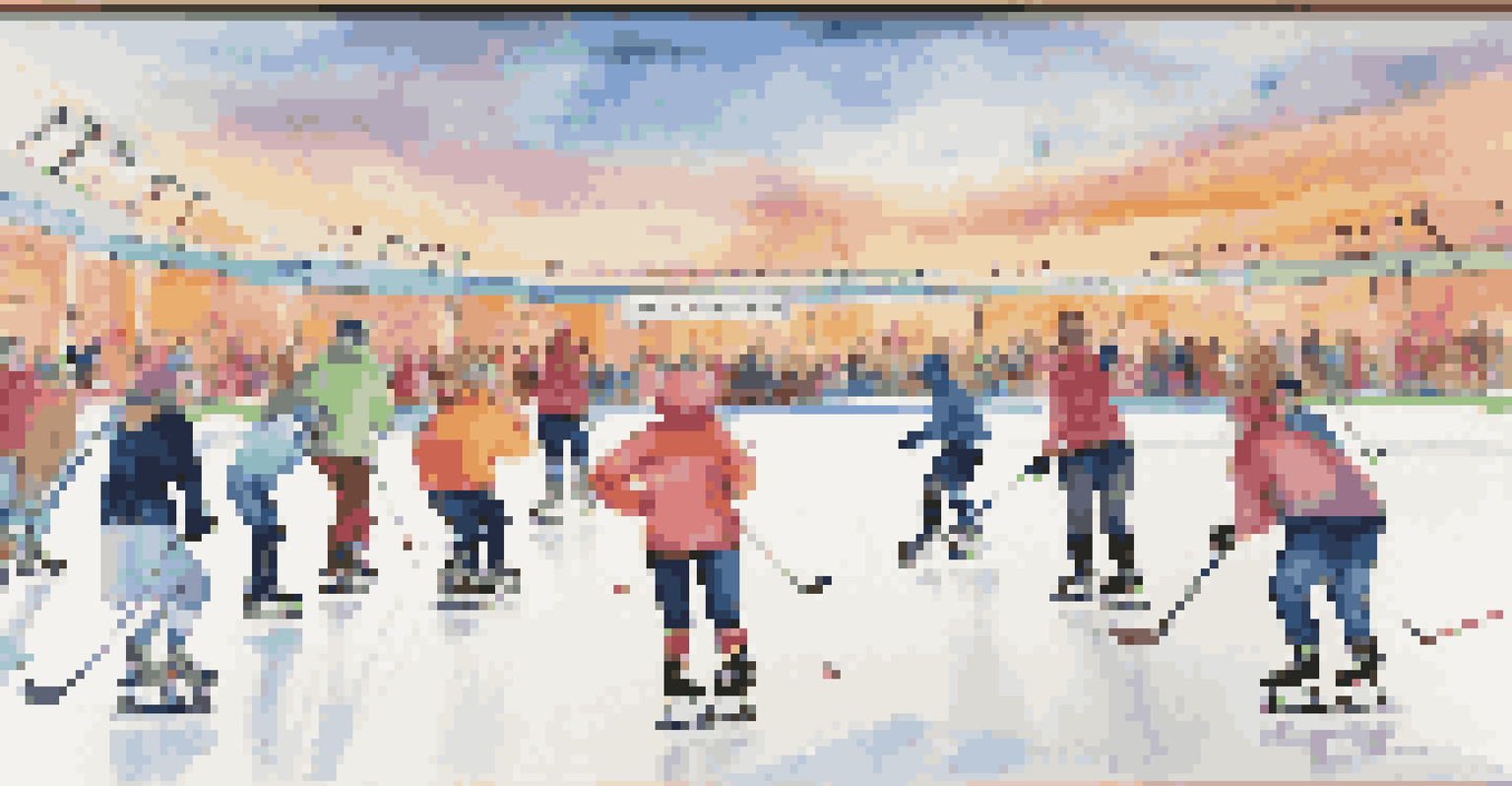How to Host a Successful Ice Skating Fundraiser Event

Choosing the Right Venue for Your Event
Selecting the perfect venue is crucial for your ice skating fundraiser. Look for rinks that are well-maintained and can accommodate your expected number of attendees. Consider accessibility features, such as parking and public transport options, to ensure everyone can join in the fun.
Success is not the key to happiness. Happiness is the key to success. If you love what you are doing, you will be successful.
Additionally, think about the atmosphere you want to create. A rink with an inviting ambiance, like twinkling lights or festive decorations, can enhance the experience and encourage more donations. Don’t forget to check if the venue offers rental skates and other amenities to make things easier for your guests.
Lastly, reviewing the venue's policies on fundraising events is essential. Some rinks may have specific guidelines or fees associated with hosting, so it's best to clarify these details upfront to avoid surprises down the line.
Setting a Date and Time for Your Fundraiser
Timing can make or break your event's success, so choose a date that maximizes attendance. Weekends are generally the best option, as people are more likely to be free. Additionally, check local calendars to avoid conflicts with holidays or major community events.

Consider the time of day as well. An afternoon skating session can attract families, while an evening event might draw in young adults looking for a fun night out. Make sure to promote your event well in advance to give people time to adjust their schedules.
Ultimately, the goal is to create a fun atmosphere that aligns with your audience's preferences. Picking the right date and time ensures that more people can join, leading to a more successful fundraiser.
Creating a Compelling Fundraising Goal
Every successful fundraiser starts with a clear goal. Determine how much money you aim to raise and what that money will support, as this creates a compelling narrative for potential donors. For example, if you're raising funds for a local charity, share how the contributions will make a difference in your community.
The best way to find yourself is to lose yourself in the service of others.
Setting a specific target also gives attendees something tangible to rally behind. You might even consider displaying a visual goal tracker at the event to keep everyone motivated throughout the day. This not only encourages contributions but fosters a sense of community spirit.
Remember, clarity is key. The more transparent and relatable your goal is, the more likely people will feel inspired to contribute generously.
Promoting Your Ice Skating Fundraiser Effectively
To attract attendees, you'll need a solid promotion plan. Start by creating eye-catching flyers and social media posts that highlight the event details, including the cause, date, and location. Utilize local community boards and online platforms to spread the word far and wide.
Engaging local media outlets can also be beneficial. Reach out to newspapers, radio stations, or local influencers who might be willing to share your event with their audiences. A press release can go a long way in generating buzz and increasing attendance.
Lastly, don’t underestimate the power of word-of-mouth. Encourage your volunteers, team members, and attendees to spread the word among their networks. Personal recommendations can significantly boost interest and attendance at your event.
Engaging Activities to Enhance the Experience
To make your ice skating fundraiser more enjoyable, consider incorporating fun activities throughout the event. Simple games like ice skating relays or a best-dressed skater contest can keep the energy lively and encourage participation. These activities not only entertain but can also lead to additional donations.
You might also consider setting up a photo booth with fun props for guests to capture their memories. This not only enhances their experience but encourages them to share their pictures on social media, further promoting your cause.
Lastly, think about providing refreshments or snacks to keep everyone energized. Whether it's hot cocoa or cookies, little touches like this can make your event feel warm and inviting, encouraging attendees to stay longer and donate more.
Involving Volunteers for a Smooth Event
Having a dedicated team of volunteers is essential for a successful fundraiser. They can help with everything from setting up the venue to guiding participants and running activities. Make sure to recruit volunteers early on and assign clear roles to ensure a smooth operation on the day of the event.
Training your volunteers is equally important. Provide them with information about your cause, the event schedule, and their specific duties. Feeling prepared will empower them to engage with attendees and promote donations effectively.
Don't forget to show appreciation to your volunteers after the event. A simple thank-you note or small token of appreciation can go a long way in making them feel valued and encouraging them to help again in the future.
Following Up After the Event
Once your ice skating fundraiser is over, it's time to follow up with attendees and donors. Sending a heartfelt thank-you email not only shows your appreciation but also keeps your supporters engaged with your cause. Share how much was raised and how those funds will be used to make a difference.
Consider sharing photos from the event on your social media platforms. This not only creates a sense of community but encourages attendees to share their experiences, further promoting your organization and future events.

Lastly, gather feedback from both volunteers and attendees to learn what worked well and what could be improved. This information will be invaluable as you plan future fundraisers, helping you create even more successful events down the line.